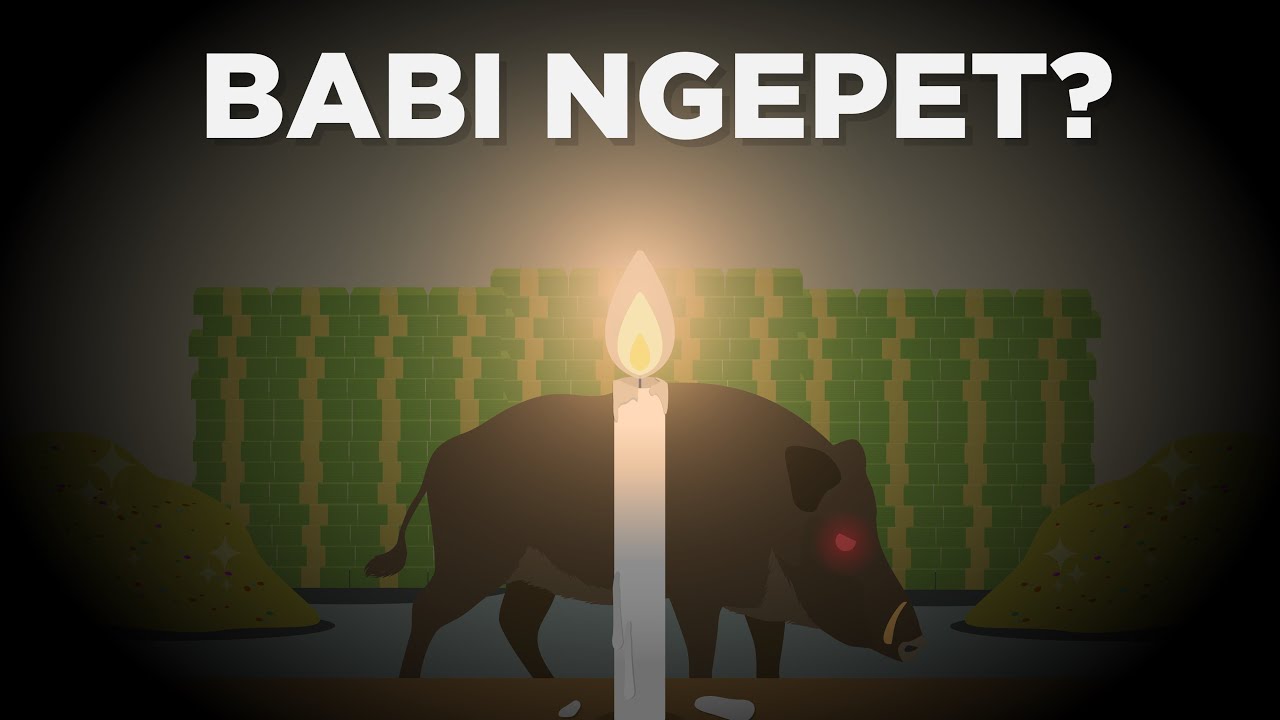
when Horror Yearbook – Babi Ngepet is one of Indonesia’s most chilling and bizarre legends, steeped in the realms of black magic and superstition. According to the folklore, Babi Ngepet is a man who can transform into a pig to steal money or valuables. The transformation is often attributed to a dark ritual, said to involve occult practices and the assistance of a mystical handler. The myth of Babi Ngepet has persisted for generations, captivating the imagination of many, particularly in rural areas where tales of sorcery and the supernatural are commonly passed down through storytelling.
The tale of Babi Ngepet comes from Southeast Asian folklore and deeply roots itself in Indonesian culture. A man transforms into a pig to gain wealth using dark magic and forbidden rituals. This transformation symbolizes greed, temptation, and the dangers of dishonest paths to riches. Someone desperate for money willingly performs a ritual to become the pig. The ritual requires invoking spirits or demonic forces through specific ceremonies. A poor man often chooses this path in hopes of escaping financial struggle. He turns into a pig at night and sneaks into homes. As the pig, he steals valuables from wealthy or careless neighbors. The magic allows him to return to human form after each theft. Darkness and secrecy protect the creature while it hunts for treasure.
“Read about: The Dark Charm of Kuman Thong: Blessing or Curse?”
The Babi Ngepet legend emphasizes the role of black magic in its power. According to the folklore, the man must find a mystical handler—often a sorcerer or witch—who possesses the knowledge of the dark arts. The sorcerer guides the individual through a series of rituals, which typically involve the use of sacred objects, incantations, and sometimes even animal sacrifices.
Once the ritual is complete, the man is bestowed with the ability to transform at will into a pig. It is said that during the transformation, the man’s body undergoes a grotesque change, his human form shrinking into the shape of a pig, while still retaining his consciousness and memory. The pig, now the thief, goes out into the night, raiding homes or businesses, taking whatever valuables it can find.
This transformation, though temporary, allows the man to accumulate wealth. However, the ritual also binds the individual to the sorcerer, who acts as both a guide and a controller of the magic. Some versions of the story suggest that the practitioner must offer a part of the stolen riches as payment to the handler or to the spirits that grant the transformation.
Babi Ngepet, like many myths, delivers a strong warning about greed and dishonesty. This tale reminds people not to seek wealth through dark paths. The myth shows the consequences of using supernatural means without effort or integrity. It warns that magic offers wealth but demands a heavy price in return. Those who chase power often trade away their values and soul. The man who performs the ritual abandons his morals for riches. He becomes the “man-pig,” a symbol of greed and human decay. The pig represents filth, gluttony, and the corruption of character. This creature shows how far someone falls when they chase money recklessly. In some versions, the man loses control of the transformation. His powers grow beyond his ability to manage them. The handler, once an ally, may turn against him later. The man ends up alone, destroyed by the magic he once welcomed.
“Read more: Creative Volunteer Work: Using Your Skills to Make a Difference”
Though Babi Ngepet originates from centuries-old folklore, its legend continues to resonate in modern-day Indonesia. Some still believe in the possibility of encountering a Babi Ngepet, particularly in rural areas where belief in the supernatural remains strong. There are reports, albeit anecdotal, of individuals claiming to have encountered pigs behaving suspiciously or of strange occurrences involving sudden wealth.
In today’s society, the story of Babi Ngepet can also be seen as a metaphor for the consequences of excessive materialism or unethical behavior in business and personal life. The idea that wealth gained through dishonesty leads to spiritual ruin or personal downfall reflects broader societal concerns about the moral cost of unchecked ambition.
Moreover, the tale continues to be popular in media, inspiring horror stories, movies, and discussions about the dangers of black magic. It remains a vivid reminder of the fine line between success and moral corruption.